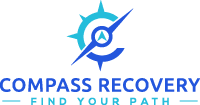 Compass Recovery is a premier, state-of-the-art addiction recovery center in western Massachusetts. Our mission is to help clients enjoy life without the burden of addiction and empower our clients to achieve sustained recovery. We differ from other recovery centers because of our comprehensive approach to the diseases of alcohol and substance use. Often, individuals struggling with addiction issues are isolated from their families and friends, which can lead to depression and even relapses. We have constructed our treatment plans, including our partial hospitalization program, with two basic approaches. One aims to integrate and connect our clients with others that share similar journeys on the road to recovery. These bonds among clients with similar issues act as yet another method to reach success. The other approach is an individualized plan suited for each client. Compass Recovery uses this combination of group and individual therapeutic programs as a recipe for long-term relief from the pain that addiction can cause.
Compass Recovery is a premier, state-of-the-art addiction recovery center in western Massachusetts. Our mission is to help clients enjoy life without the burden of addiction and empower our clients to achieve sustained recovery. We differ from other recovery centers because of our comprehensive approach to the diseases of alcohol and substance use. Often, individuals struggling with addiction issues are isolated from their families and friends, which can lead to depression and even relapses. We have constructed our treatment plans, including our partial hospitalization program, with two basic approaches. One aims to integrate and connect our clients with others that share similar journeys on the road to recovery. These bonds among clients with similar issues act as yet another method to reach success. The other approach is an individualized plan suited for each client. Compass Recovery uses this combination of group and individual therapeutic programs as a recipe for long-term relief from the pain that addiction can cause.
What Is a Partial Hospitalization Program (PHP)?
At Compass Recovery, we are truly committed to helping you find your path. In order to find the best approach to recovery for you, we assess your current mental and physical health, then tailor outpatient addiction treatment to your specific needs. In some cases, the optimal plan may be a partial hospitalization program.
A PHP provides structure to our clients without the confines of a traditional inpatient or residential rehab facility. The partial hospitalization program allows flexibility for our clients by having them come to our facility every day for a set amount of time but then return home after treatment. This approach gives our clients the essential treatment that they need and deserve in order to heal from substance abuse disorders.
What Types of Therapeutic Approaches Could Be Part of a Partial Hospitalization Program?
Addiction is a complex disease, so treatment plans vary from client to client. At Compass Recovery, we pride ourselves in our ability to create a potential path to recovery for each individual. Our outpatient addiction treatment plans provide a number of therapeutic services such as:
- Cognitive-behavioral therapy (CBT): CBT focuses on identifying and changing negative self-image and negative thinking, contributing to substance abuse.
- Dialectical behavior therapy (DBT): DBT is a form of CBT helping clients learn to develop healthy ways to cope with stress and regulate emotions.
- Motivational interviewing (MI): MI helps clients resolve ambivalent feelings and insecurities by learning how to be practical and empathetic.
Not every treatment modality is right for every patient. However, at Compass Recovery, we offer a broad range of evidence-based and holistic approaches with the aim of giving each of our patients the tools they need for genuine, long-term recovery.
Are There Additional Methods To Be Used as Part of a PHP?
Compass Recovery also uses holistic practices such as yoga therapy, meditation, and mindfulness in conjunction with therapeutic services. These holistic alternatives often become part of our clients’ daily routine as a technique to cope with the disease of addiction. Also, Compass Recovery provides guidance through 12-step programs as a way for our clients to continue their positive way of life long after finishing their treatment. We have found that presenting a number of methods to combat addiction contributes to long-lasting success for our clients. Also, a PHP provides our clients with the opportunity to emerge from our program and transition into a productive everyday life. Compass Recovery’s goal is to empower our clients to achieve sustained recovery.
How Do I Find Out If a PHP Should Be Part of My Recovery?
If you or a loved one is suffering from alcohol or substance addiction, we are waiting to hear from you. To learn more, reach out to Compass Recovery at 844.844.2988 or by completing our secure online form to get on the path towards sobriety and healing. Our team of admissions counselors can guide you through the process, answer your questions, and address your concerns.
